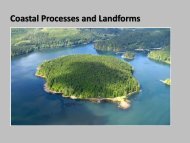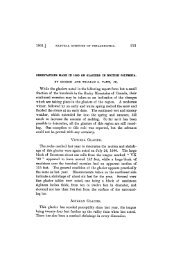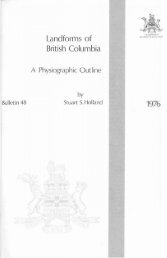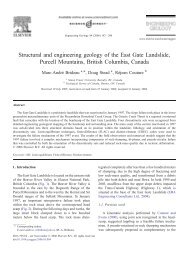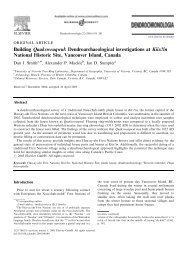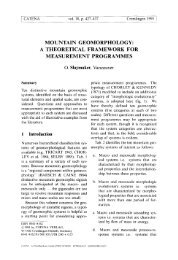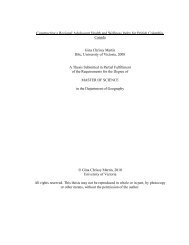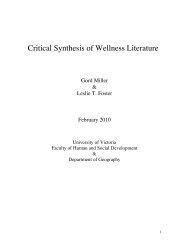Sustainable Food Production, Consumption, and the Generation of
Sustainable Food Production, Consumption, and the Generation of
Sustainable Food Production, Consumption, and the Generation of
Create successful ePaper yourself
Turn your PDF publications into a flip-book with our unique Google optimized e-Paper software.
‘consuming less <strong>and</strong> consequently wasting less’. Particularly in our local community in Victoria<br />
<strong>the</strong>se alternatives gain more <strong>and</strong> more attention <strong>and</strong> an increasing number <strong>of</strong> people are<br />
becoming involved in new ways <strong>of</strong> accessing food <strong>and</strong> consuming more healthy products. The<br />
Community Green mapping with specific focus on fruit trees <strong>and</strong> community gardens is just one<br />
example.<br />
The present document is <strong>the</strong> result <strong>of</strong> a collaborative empirical study on food production,<br />
consumption, <strong>and</strong> waste; undertaken by three Geography Graduate Students (Analisa Blake,<br />
Crystal Tremblay <strong>and</strong> Gerry Watson) at <strong>the</strong> University <strong>of</strong> Victoria during <strong>the</strong> spring <strong>and</strong> summer<br />
semesters in 2005, in fulfilment <strong>of</strong> <strong>the</strong> course requirements for Qualitative Methods (GEOG<br />
523). The students were provided with a <strong>the</strong>oretical <strong>and</strong> practical foundation in a range <strong>of</strong><br />
qualitative methodologies used in contemporary human geography. In a participatory <strong>and</strong><br />
collaborative fashion we defined <strong>the</strong> research topic based on our interests <strong>and</strong> societal relevance<br />
<strong>and</strong> designed <strong>the</strong> field component based on a multi-method approach. We held regular meetings<br />
<strong>and</strong> electronically exchanged information to constantly update us about findings in <strong>the</strong> literature<br />
<strong>and</strong> to coordinate <strong>the</strong> field activities. This innovative <strong>and</strong> creative approach towards teaching,<br />
learning <strong>and</strong> social engagement was only possible due to <strong>the</strong> highly committed <strong>and</strong> motivated<br />
students. This research project proposal has received approval by <strong>the</strong> University’s Ethics<br />
Committee.<br />
The primary focus <strong>of</strong> this project was to look at sustainable food production <strong>and</strong><br />
consumption in Victoria, <strong>the</strong> generation <strong>of</strong> food packaging waste <strong>and</strong> <strong>the</strong> current policies in place<br />
to minimize waste <strong>and</strong> encourage more healthy food production. The literature search <strong>and</strong><br />
analysis as well as <strong>the</strong> empirical data collection are based on <strong>the</strong> following three major research<br />
topics; <strong>of</strong> course without being able to cover in depth all relevant aspects <strong>of</strong> <strong>the</strong>se <strong>the</strong>mes:<br />
1. What are <strong>the</strong> public’s perceptions <strong>and</strong> behaviours related to local production <strong>and</strong> what is <strong>the</strong><br />
potential for local food production?<br />
2. How do consumers perceive packaging waste generated by <strong>the</strong>ir food consumption <strong>and</strong> what<br />
ecologically conscious practices are adopted by consumers to reduce this waste?<br />
5



